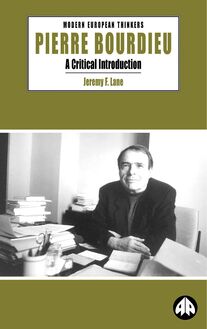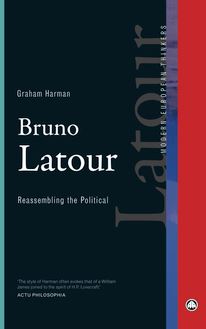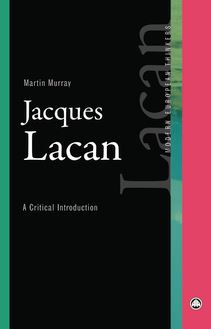-
 Univers
Univers
-
 Ebooks
Ebooks
-
 Livres audio
Livres audio
-
 Presse
Presse
-
 Podcasts
Podcasts
-
 BD
BD
-
 Documents
Documents
-
- Cours
- Révisions
- Ressources pédagogiques
- Sciences de l’éducation
- Manuels scolaires
- Langues
- Travaux de classe
- Annales de BEP
- Etudes supérieures
- Maternelle et primaire
- Fiches de lecture
- Orientation scolaire
- Méthodologie
- Corrigés de devoir
- Annales d’examens et concours
- Annales du bac
- Annales du brevet
- Rapports de stage
La lecture à portée de main
Vous pourrez modifier la taille du texte de cet ouvrage
Découvre YouScribe en t'inscrivant gratuitement
Je m'inscrisDécouvre YouScribe en t'inscrivant gratuitement
Je m'inscrisEn savoir plus
Vous pourrez modifier la taille du texte de cet ouvrage
En savoir plus

Description
Introduction
1. Peasants into Revolutionaries?
2. Frenchmen into Consumers?
3. Universities
4. Returning to Kabylia
5. Anthropology and Sociology
6. Old Wine, Distinctive New Bottles
7. Neo-Liberalism and the Defence of the ‘Universal’
Conclusion
Notes and References
Bibliography
Index
Sujets
Informations
| Publié par | Pluto Press |
| Date de parution | 20 juillet 2000 |
| Nombre de lectures | 6 |
| EAN13 | 9781783718603 |
| Langue | English |
Informations légales : prix de location à la page 0,1498€. Cette information est donnée uniquement à titre indicatif conformément à la législation en vigueur.
Extrait
Pierre Bourdieu
Modern European Thinkers
Series Editor: Professor Keith Reader, University of Newcastle upon Tyne
The Modern European Thinkers series offers low-priced introductions for students and other readers to the ideas and work of key cultural and political thinkers of the post-war era.
Jean Baudrillard
Mike Gane
Edgar Morin
Myron Kofman
Walter Benjamin
Esther Leslie
André Gorz
Conrad Lodziak and Jeremy Tatman
Gilles Deleuze
John Marks
Guy Hocquenghem
Bill Marshall
George Bataille
Benjamin Noys
Régis Debray
Keith Reader
Julia Kristeva
Anne-Marie Smith
Pierre Bourdieu
A Critical Introduction
Jeremy F. Lane
First published 2000 by Pluto Press 345 Archway Road, London N6 5AA
www.plutobooks.com
Copyright © Jeremy F. Lane 2000
The right of Jeremy F. Lane to be identified as the author of this work has been asserted by him in accordance with the Copyright, Designs and Patents Act 1988.
British Library Cataloguing in Publication Data A catalogue record for this book is available from the British Library
ISBN 978 0 7453 1501 0 Paperback ISBN 978 1 7837 1884 9 PDF eBook ISBN 978 1 7837 1860 3 ePub eBook ISBN 978 1 7837 1861 0 Kindle eBook
Library of Congress Cataloging in Publication Data applied for
Designed and produced for Pluto Press by Chase Production Services Typeset from disk by Stanford DTP Services, Northampton
Printed on Demand in the European Union by CPI Antony Rowe, Chippenham and Eastbourne, England
Contents
Acknowledgements
Introduction
1. Peasants into Revolutionaries?
2. Frenchmen into Consumers?
3. Universities
4. Returning to Kabylia
5. Anthropology and Sociology
6. Old Wine, Distinctive New Bottles
7. Neo-Liberalism and the Defence of the ‘Universal’
Conclusion
Bibliography
Index
For Ben Taylor, who first encouraged me to think about French culture.
Acknowledgements
The PhD thesis on which this study is based was born of a snap decision to abandon a lucrative job at a London radio station, move to Glasgow and become a student once again. Pierre Bourdieu notes somewhere that those who have a decent stock of inherited cultural and economic capital can easily afford to make the most apparently risky career moves and this was no doubt true in my case. Nonetheless, the social and psychological risks involved in such a move could have been real enough, had it not been for the constant support of friends, family and colleagues in London and the immense warmth of my reception in the marvellous city of Glasgow. The individuals concerned are too numerous to be mentioned here by name, but they know who they are and without their support this project would never have come to fruition.
First amongst those who made a more tangible contribution to the completion of this study is my thesis supervisor, Professor Sian Reynolds, without whose acute mind, encyclopedic knowledge of French history and society, and unfailing good humour my work on Bourdieu would not have progressed far. Of the many other individuals who contributed their time, advice and encouragement, I should also like to thank Jon Beasley-Murray, Pierre Bourdieu, Peter Collier, Martyn Cornick, Jill Forbes, Michael Kelly, Bill Kidd, Bill Marshall, Martin McQuillan, Robin Purves, Graeme MacDonald, Graham Roberts, Stephen Thomson and all my colleagues in the French Departments at the Universities of Stirling and Aberdeen. The Faculty Research Committee of the University of Aberdeen offered much appreciated financial help in covering copyright expenses. The editorial board of Modern and Contemporary France kindly agreed to my reproducing, in Chapter 5 , a modified version of an article, ‘Domestiquer l’exotique, exotiser le domestique: the symbiosis of ethnology and sociology in the work of Pierre Bourdieu’, that first appeared in their journal in 1997, vol. 5, no. 4, pp. 445–56.
Introduction
In late August 1998, a photograph of the sociologist and anthropologist Pierre Bourdieu appeared on the front cover of the weekly French news magazine L’Evénement du jeudi . Below the photograph was a caption which read: ‘Bourdieu, the most powerful intellectual in France’. Inside the magazine, a lengthy ‘dossier’ discussed the perceived strengths and weaknesses of Bourdieu’s work. 1 That same month, similar ‘dossiers’ dedicated to Bourdieu appeared in the other principal French weeklies and dailies, Le Nouvel observateur, Libération, L’Express and Le Monde . 2 As the satirical French weekly Le Canard enchaîné put it, ‘Bourdieumania’ seemed to have broken out in the French media. 3
No doubt Bourdieu himself was less than delighted with this sudden burst of media attention, sparked as it was by the publication of Janine Verdès-Leroux’s highly critical study of his work, Le Savant et la politique: essai sur le terrorisme sociologique de Pierre Bourdieu (Politics and the Scholar: an essay on Pierre Bourdieu’s sociological terrorism) (see Verdès-Leroux 1998). Nonetheless, the intense media interest in Bourdieu’s work did genuinely reflect his current status as one of France’s most high-profile intellectuals, a status gained both through his extensive theoretical output in the domains of sociology and anthropology and his increasingly frequent political interventions in defence of France’s most impoverished and marginalised social groups, the homeless, the unemployed, illegal immigrants, striking workers. Bourdieu’s name perhaps first began to be associated with these social and political issues in 1993, with the publication of the immense collaborative study of contemporary forms of social exclusion published under his editorship, The Weight of the World ( La Misère du monde 1993). The book clearly resonated with a broader sense of political, cultural, and social malaise in France; it sold in large numbers and certain of its passages have been performed as short plays by French theatre groups. Bourdieu’s public intervention in support of striking students and workers during the French public sector strikes of autumn 1995 raised his political profile still further. It was surely this experience of political engagement which encouraged him to found and edit the Raisons d’agir series, a set of pamphlets presenting ‘the most advanced state of research on current political and social problems’ written by a range of authors ‘all animated by the politically engaged desire to circulate the knowledge indispensable for political reflection and action in a democracy’ (Halimi 1997, p. 4). Bourdieu has himself published two pamphlets in this series; an analysis of the threat to intellectual and artistic autonomy posed by the media in On Television and the Media ( Sur la télévision 1996), and a series of directly political interventions, ‘propositions for resisting the neo-liberal invasion’, in Acts of Resistance ( Contre-feux 1998). Both books have prompted further heated debate and sometimes quite hostile responses in the French media (see Schneidermann 1999).
Bourdieu’s fame and influence are, however, by no means solely attributable to his recent, more directly political pronouncements in his native France. On the contrary, his work has for many years now exerted a significant influence over the fields of sociology and anthropology throughout the world. His theories of class, culture, and education, elaborated in texts such as The Inheritors ( Les Héritiers 1964), Reproduction ( La Reproduction 1970), and Distinction ( La Distinction 1979), are obligatory points of reference for anyone writing in these areas. His three book-length studies of Kabylia in Algeria, Esquisse d’une théorie de la pratique (1972), its much revised and extended English translation, Outline of a Theory of Practice (1977), and The Logic of Practice ( Le Sens pratique 1980), have acquired a similar status within the domain of anthropology. The publication in 1992 of Bourdieu’s detailed study of the structure and genesis of the nineteenth-century French artistic and literary fields, The Rules of Art ( Les Règles de l’art 1992), meanwhile, has extended his influence in the areas of literary and cultural studies. The year 1997, alone, saw the publication of two introductions to Bourdieu’s work in French and two monographs in English, a special number of the academic journal Modern Language Quarterly , and two international conferences, at the universities of Southampton and Glasgow, dedicated to his work (Accardo 1997; Bonnewitz 1997; Fowler 1997; Swartz 1997; Moi, ed. 1997).
The immense public interest surrounding Bourdieu’s political interventions, combined with the academic interest in his more specialised theoretical output, as manifest in the huge secondary literature generated by his work and the rapidity with which his new works are translated, suggest that his status as a significant international thinker is beyond question. However, if a broad consensus exists regarding the importance of Bourdieu’s thought, the same cannot be said when it comes to situating that thought with regard to other intellectual traditions and movements. As the authors of the volume An Introduction to the Work of Pierre Bourdieu (1990) have pointed out, Bourdieu ‘has been authoritatively placed in all major theoretical traditions’, Marxist, Weberian, Durkheimian, even ‘poststructuralist’ or ‘postmodernist’ (Harker et al. 1990, p. 213). Loïc Wacquant has similarly emphasised what he terms the ‘blurred visions’, ‘conflicting reactions’, and ‘fragmented readings’ which have hampered Bourdieu’s reception in the English-speaking world (in Calhoun et al. 1993, pp. 235–62). As Wacquant argues, such confusions can largely be attributed to a failure by critics adequately to grasp the range of theoretical traditions with which Bourdieu engages, that ‘nexus of antagonistic and competing positions within which and against which Bourdieu developed his own stance’ (p. 245). Clearly then, there is a need for a study which positions Bourdieu’s work mu
-
 Univers
Univers
-
 Ebooks
Ebooks
-
 Livres audio
Livres audio
-
 Presse
Presse
-
 Podcasts
Podcasts
-
 BD
BD
-
 Documents
Documents
-
Jeunesse
-
Littérature
-
Ressources professionnelles
-
Santé et bien-être
-
Savoirs
-
Education
-
Loisirs et hobbies
-
Art, musique et cinéma
-
Actualité et débat de société
-
Jeunesse
-
Littérature
-
Ressources professionnelles
-
Santé et bien-être
-
Savoirs
-
Education
-
Loisirs et hobbies
-
Art, musique et cinéma
-
Actualité et débat de société
-
Actualités
-
Lifestyle
-
Presse jeunesse
-
Presse professionnelle
-
Pratique
-
Presse sportive
-
Presse internationale
-
Culture & Médias
-
Action et Aventures
-
Science-fiction et Fantasy
-
Société
-
Jeunesse
-
Littérature
-
Ressources professionnelles
-
Santé et bien-être
-
Savoirs
-
Education
-
Loisirs et hobbies
-
Art, musique et cinéma
-
Actualité et débat de société
- Cours
- Révisions
- Ressources pédagogiques
- Sciences de l’éducation
- Manuels scolaires
- Langues
- Travaux de classe
- Annales de BEP
- Etudes supérieures
- Maternelle et primaire
- Fiches de lecture
- Orientation scolaire
- Méthodologie
- Corrigés de devoir
- Annales d’examens et concours
- Annales du bac
- Annales du brevet
- Rapports de stage

















